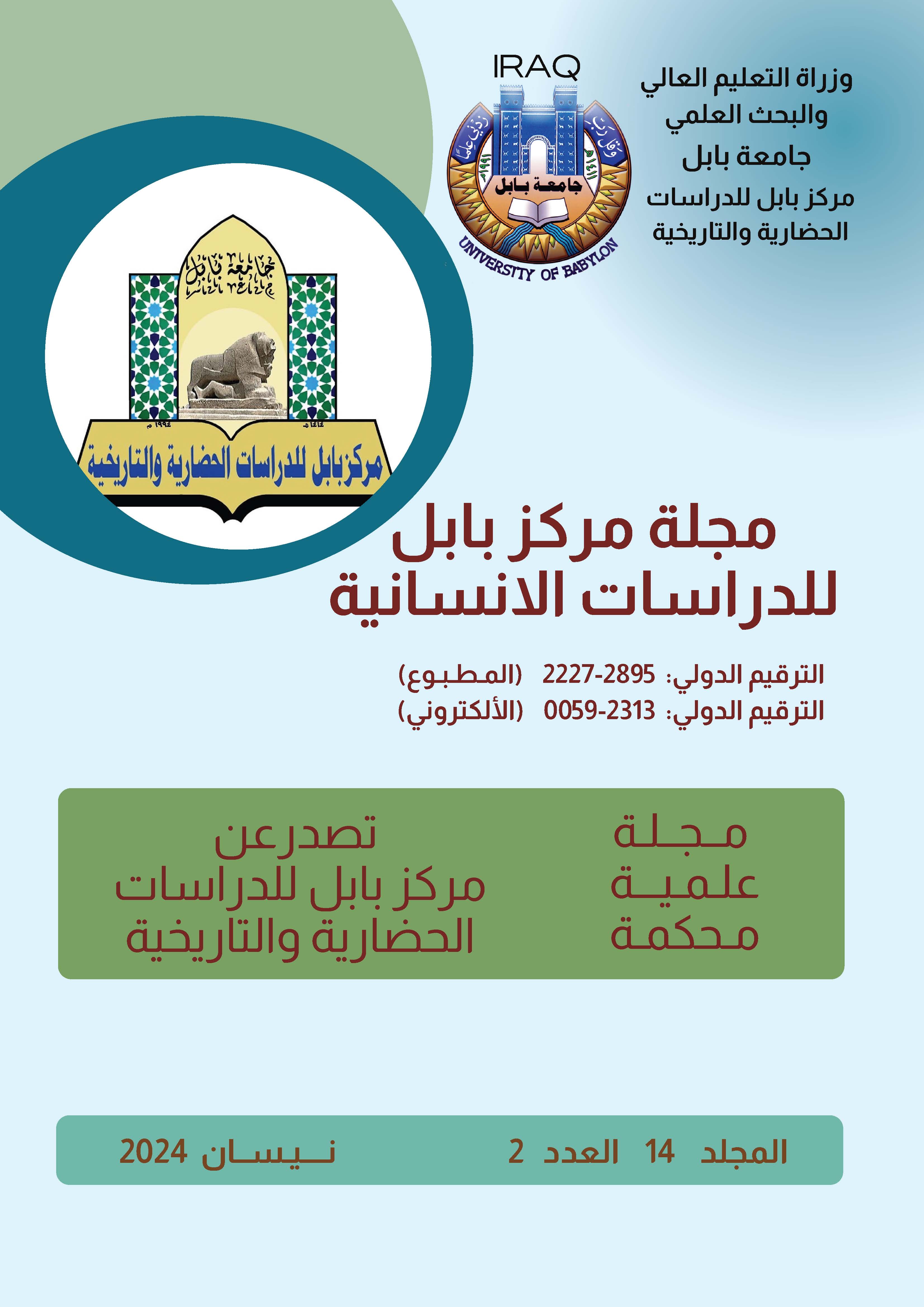دور الملائكة في حروب النبي (ص) بين النص القرآني والتاريخي
الكلمات المفتاحية:
النص القرأني- معركة بدر- الرواية العربية – الشريعة - تجسد الملائكةالملخص
إن الإيمان بالغيب يعد جزء من الإيمان في الدين الإسلام ، قال تعالى ( والذين يؤمنون بالغيب) ، وتعد الملائكة من مظاهر الغيب التي أشار القرآن كثيرا إلى أسماء بعضهم ، وصفاتهم ، ومهامهم ، وكان مما ذكره القرآن نزول الملائكة في معركة بدر، وفي يوم الاحزاب ، لكن هناك اختلاف حول دور الملائكة في هذه المعارك بين ظاهر القرآن وما فهمه الرواة الأوائل، وقد ذهب المخيال العربي إلى عرضهم كأجساد بشرية تشابه صورة المقاتل العربي ، فيرتدي الملائكة عمامة ويركبون الخيول ، وذهبت الرواية العربية لبيان دور اكبر للملائكة تمثل بقتل وأسر الكفار . ولكن أولئك الرواة لا يتعدون أن يكونوا ممن اشترك من المشركين في يوم بدر أو ممن اسلم في فتح مكة سنة 8 هجرية ، أو من المجهولين ، أو من التابعين وهم الجيل اللاحق لجيل الصحابة . فكيف يمكن الوثوق بما جاءوا به ، ولعلهم رووه من باب الاستهزاء ، او التفسير الحرفي للآيات القرآنية ، ولقد جاء هذا البحث للمقارنة بين ما جاء في النص القرآني ، وبين ما تضمنته الرواية التاريخية التي لعلها جاءت انعكاسا للمخيال العربي. ومن اهم مصادر الدراسة فكانت: كتب السيرة، كسيرة ابن اسحاق ت151 هجرية، وسيرة ابن هشام ت218 هجرية، وسيرة ابن سيد الناس ت734 هجرية، ومن كتب المغازي: كتاب مغازي الواقدي ت 209 هجرية، أما من كتب التاريخ، فكتاب تاريخ الرسل والملوك للطبري ت310 هجرية، وكتاب البداية والنهاية لابن كثير ت774 هجرية. فضلا عن كتب الحديث النبوي، كصحيح البخاري ت 256 هجرية، وصحيح مسلم ت261 هجرية وغيرها.المراجع
التنزيلات
منشور
2024-04-30
إصدار
القسم
Articles







